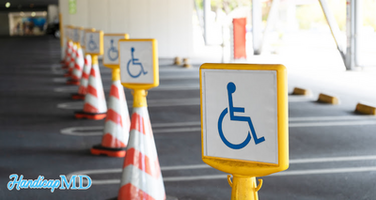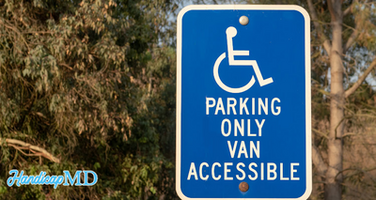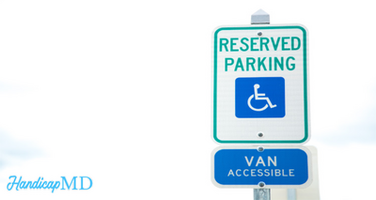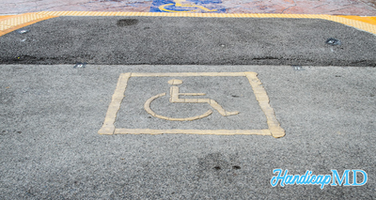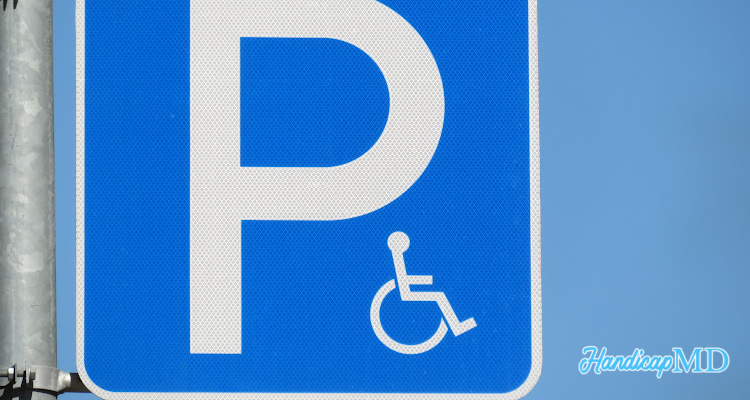
Handicap Placard Violations and Penalties in North Dakota: What You Need to Know
Introduction
Disability permits are essential tools for individuals with disabilities, granting them easier access to parking spaces close to buildings and facilities. North Dakota, like other states, has stringent rules and regulations regarding the use and misuse. Understanding these laws is crucial to avoid violations and penalties.
This article aims to provide a detailed overview of Handicap Placard Violations and Penalties in North Dakota. We'll explore the guidelines for acquiring and using it, common violations, potential penalties, and how to stay compliant with the law. Let's delve into this vital topic and ensure that everyone understands their responsibilities in creating a more accessible environment for individuals with disabilities.
What is a Handicap Placard?
Before diving into the violations and penalties, let's start with the basics. A Handicap Placard is a special permit issued to individuals with disabilities, allowing them to park in designated accessible parking spaces. These spaces are strategically placed near entrances to buildings, ensuring easier access for those who face mobility challenges.
Acquiring a Handicap Placard in North Dakota
To obtain a handicap permit in North Dakota, individuals must meet specific criteria set forth by the state's Department of Transportation. The criteria generally include having a medical professional's certification of the disability and demonstrating the need for special parking privileges due to mobility limitations.
The application process may require documentation such as medical records and a completed application form, which can be obtained from the North Dakota Department of Transportation website or local motor vehicle offices.
Different Types of Handicap Placards
North Dakota offers different types, each serving a unique purpose. These types may include temporary, permanent, and organization permits for institutions that transport disabled individuals.
Temporary ones are issued for a specific duration, whereas permanent ones are valid for an extended period. Organization passes are typically given to institutions that offer transportation services to disabled individuals.
Proper Display of Placards
It's crucial for authorized holders to correctly display their handicap placards while utilizing designated accessible parking spaces. It should be hung on the rearview mirror, ensuring that all necessary information, such as the expiration date, is visible from the outside.
Avoiding the improper display is essential, as it can lead to confusion and result in parking violations.
Common Placard Violations
Unfortunately, some individuals misuse theses tags, leading to violations and depriving those with legitimate disabilities of accessible parking spaces. Common violations include using an expired one, using someone else's, or altering a valid tag.
These violations undermine the purpose of designated parking spaces and hinder accessibility for those who genuinely need them.
Penalties for Placard Violations
North Dakota handicap placard violations are taken seriously, and the penalties can be significant. Violators may face fines, possible suspension of driving privileges, and even criminal charges, depending on the severity of the violation.
For instance, using a counterfeit or repeatedly violating the regulations may lead to more severe consequences.
Reporting Placard Abuse
To combat an abuse effectively, North Dakota encourages citizens to report suspicious activities related to permit misuse. Reporting can be done through various channels, such as contacting local law enforcement or the North Dakota Department of Transportation.
By reporting violations, individuals can help maintain the integrity of designated parking spaces and ensure that those who genuinely require these privileges can access them without any hindrance.
Avoiding Placard Violations
It is essential for all drivers, whether they have a disability or not, to respect parking regulations and only use designated spaces when they are eligible. To avoid violations, ensure that you follow the guidelines for using disability tags correctly.
Always display your valid tag as required and refrain from using someone else's, even for a short period.
Educating the Public on Placard Use
Public awareness and education play a crucial role in combating these violations. Educational campaigns can help spread awareness about the importance of accessible parking spaces and the consequences of a misuse.
By fostering understanding and empathy, we can create a more inclusive and accommodating environment for individuals with disabilities.
Enforcement of Parking Regulations
Proper enforcement of parking regulations is vital to maintaining the accessibility of designated spaces. Local law enforcement officers and parking enforcement personnel must vigilantly patrol parking areas and issue citations for violations.
Effective enforcement acts as a deterrent, discouraging potential violators from misusing disability passes.
The Impact of Placard Misuse on Disabled Individuals
Violations not only affect the accessibility of parking spaces but also have a direct impact on disabled individuals. When non-disabled individuals misuse these spaces, it can lead to frustration, inconvenience, and difficulties for those with disabilities.
Understanding the emotional and physical toll of a misuse can emphasize the importance of compliance with disabled parking regulations.
Dispelling Common Misconceptions about Handicap Placards
There are several misconceptions, such as assuming that all disabilities are visible or that the rules are lenient. Addressing these misconceptions can help foster a more informed and empathetic community.
Educating the public about the diverse nature of disabilities and the importance of adhering to regulations can lead to a more understanding and compassionate society.
Raising Awareness on Inaccessible Parking Spaces
It is essential to highlight the issue of inaccessible parking spaces for individuals with disabilities. Many parking lots may not have enough designated spaces, or the spaces may not be adequately sized for accessibility needs.
Raising awareness about the need for better infrastructure and accommodations can bring attention to this ongoing challenge.
Legal Rights of Disabled Individuals
Understanding the legal rights of disabled individuals regarding parking and accessibility is vital. The Americans with Disabilities Act (ADA) protects the rights of individuals with disabilities and mandates the provision of accessible parking spaces.
By knowing their rights, individuals with disabilities can advocate for better accommodations and challenge any discriminatory practices they encounter.
Resources for Handicap Placard Information
The North Dakota Department of Transportation and other relevant organizations offer valuable resources and information about disability passes, regulations, and accessible parking.
By utilizing these resources, individuals can stay informed and ensure they are in compliance with the latest guidelines.
FAQs (Frequently Asked Questions):
Can I use my friend's disability pass for a quick errand?
No, using someone else's pass, even for a short errand, is considered a violation. Each permit is assigned to a specific individual and cannot be shared or transferred.
What are the consequences of using a counterfeit disability pass?
Using a counterfeit permit is a severe offense and can result in criminal charges, substantial fines, and the suspension of driving privileges.
How long does a temporary disability pass remain valid?
The validity of a temporary pass depends on the medical professional's certification, typically ranging from a few weeks to several months.
Can I park in an accessible space if I have a disabled passenger but no pass?
No, to utilize an accessible parking space, you must have a valid permit displayed, regardless of whether you have a disabled passenger.
What should I do if I notice someone misusing a disability parking space?
If you suspect disability permit abuse, you should report it to local law enforcement or the North Dakota Department of Transportation with as much detail as possible to aid in their investigation.
Can I use my disability pass in other states?
Yes, permits issued in North Dakota are generally recognized in other states. However, it is essential to familiarize yourself with the specific regulations of the state you are visiting.
Conclusion
Handicap Placard Violations and Penalties in North Dakota is a crucial topic that demands attention from all members of society. Understanding the rules and regulations surrounding disability parking placards is essential to create an inclusive environment that accommodates the needs of individuals with disabilities.
By educating ourselves and others, respecting accessible parking spaces, and reporting violations, we can ensure that these valuable parking spots remain available to those who genuinely need them. Let us work together to foster empathy, compliance, and accessibility for all.
.png)


